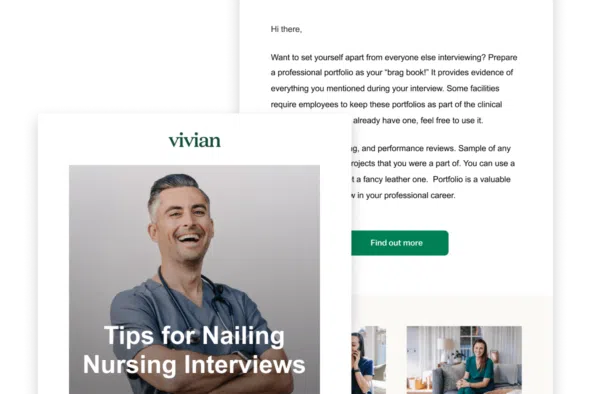In the fast-paced world of healthcare, the demand for skilled professionals is higher than ever. Licensed Practical Nurses (LPNs) play a vital role in providing quality care to patients, making LPN programs a popular choice. Online education has seen a remarkable surge in popularity in recent years, and the healthcare field is no exception. The convenience and flexibility offered by online programs have revolutionized how prospective LPNs prepare for careers in healthcare. Various factors drive this trend, including the desire for work-life balance, the need to accommodate busy schedules and the increasing availability of high-quality online LPN programs.
The decision between pursuing your LPN education online or in person is a crucial one and can significantly impact your career prospects. Let’s take a look at both options to help you make an informed decision about your LPN program options.
Overview of LPN Programs

LPN programs are structured educational pathways designed to train and prepare individuals to become Licensed Practical Nurses. If you’re wondering about the difference between LPN vs. LVN, there’s really no difference, it’s simply how the position is named across the U.S. Most areas use LPN, but the LPN role is often called a Licensed Vocational Nurse (LVN) in California and Texas. LPNs are the backbone of the healthcare system, serving as a bridge between patients and the broader medical team. They deliver essential patient care under the supervision of Registered Nurses (RNs) and doctors, with primary responsibilities including medication administration and providing patient advocacy, support and comfort.
LPN programs provide a comprehensive education, equipping aspiring nurses with the knowledge and skills needed to excel in the field. These programs typically cover a range of topics, including:
- Clinical Skills
- Patient Care
- Pharmacology
- Anatomy and Physiology
- Medical Ethics and Legal Issues
Consider Learning Styles and Preferences
Before deciding between in-person and online LPN programs, it’s essential to consider your unique learning style and preferences. There’s no one-size-fits-all answer to this decision, as it’s highly personal. Assess whether you thrive in a self-paced, independent online environment or prefer the structure and interaction provided by in-person programs. Recognizing your learning style and what works best for you helps ensure a more successful and fulfilling educational experience.
Pros and Cons of In-Person and Online LPN Programs

When choosing between in-person and online LPN programs, weigh these pros and cons to align your decision with your needs and preferences.
| Pros | Cons | |
| In-Person LPN Program |
|
|
| Online LPN Program |
|
|
Balancing Work, Life and Education
Maintaining a healthy work-life balance while pursuing an LPN education is essential for overall well-being and academic success. The choice between online and in-person programs can considerably impact how you manage this balance.
Online LPN programs offer greater flexibility, allowing you to study at your own pace and reduce commuting time. However, the absence of a structured schedule can challenge your self-discipline. To manage these commitments effectively, it’s essential to create a dedicated study space, establish a routine and set clear boundaries with family and friends to minimize distractions. In contrast, in-person programs provide a more structured schedule and hands-on experience, but they can be less flexible.
Balancing work, personal life and education can pose challenges. It’s imperative to communicate transparently with your employer, maintain a strong support network with family and friends and implement efficient time management techniques. You must be honest about the commitments you can realistically handle and to assess the time at your disposal accurately. The choice between these two program types should align with your specific circumstances and preferences. Maintaining a work-life balance will be a fundamental factor in your success.
Research LPN Program Accreditation and Quality

Program accreditation is a critical factor when considering both in-person and online courses. Accreditation is a formal recognition that a program or institution meets established standards of quality and excellence. It serves as a guarantee that your educational investment will provide you with the knowledge and skills needed to excel in your chosen field.
Importance of Program Accreditation
- Quality Assurance: Accreditation ensures the program maintains high academic and professional standards. It also means you’re receiving an education that meets industry benchmarks.
- Transferability: Accredited programs are more likely to have their credits recognized and accepted by other institutions should you wish to continue your education or change schools.
- Employability: Many employers prefer or even require candidates with degrees or certifications from accredited programs, which signifies a higher level of competence.
Researching and Verifying Accreditation Status
To determine whether an in-person or online program holds accreditation, follow these steps:
- Check the Program’s Website: Most accredited programs proudly display their accreditation status on their websites.
- Verify Accreditation Agencies: Ensure that the accrediting agency is reputable and recognized by the U.S. Department of Education or the Council for Higher Education Accreditation (CHEA). Nursing schools can be accredited regionally or nationally. The two national organizations are the Accreditation Commission for Nursing Education (ACEN) and the Commission on Collegiate Nursing Education (CCNE).
- Contact the Program: If you need help finding the information online, contact the program’s admissions or academic department. They should be able to provide you with the accreditation details.
- Utilize Accreditation Databases: You can conveniently access online databases on websites such as the U.S. Department of Education, CHEA, ACEN and CCNE to view comprehensive lists of accredited programs and institutions.
Finding High-Quality Programs that Align with Your Goals

Apart from accreditation, there are other factors to consider when evaluating an LPN program’s quality and its alignment with your career goals, including:
- Faculty Qualifications: Investigate the credentials and experience of the faculty members. High-quality LPN programs have educators with nursing and healthcare experience.
- Student Outcomes: Look for data on the program’s graduate employment rates, licensure exam pass rates and student satisfaction.
- Curriculum Relevance: Ensure the program’s curriculum aligns with your career goals and interests.
- Resources and Support: Evaluate the program’s student support services, such as career counseling, academic advising and technical support – especially crucial for online programs.
- Reviews and Alumni Feedback: Seek reviews and feedback from current students and program alums to gain insights into the program’s quality and reputation.
- Cost and Financial Aid: Consider the program’s price and the availability of financial aid or scholarships, ensuring it fits your budget.
By carefully researching accreditation, program quality and alignment with your career aspirations, you can make an informed decision that ensures you receive a high-quality education that will serve you well in nursing.
LPN Career Opportunities and Advancement
No matter which program type you choose, once you become an LPN, you should have a range of career opportunities in various healthcare settings, including hospitals, long-term care facilities, clinics and home healthcare. LPNs can further their careers by specializing in pediatrics, gerontology or critical care, which may require further education.
The Bureau of Labor Statistics (BLS) anticipates the demand for LPNs is anticipated to increase by 5% percent between 2022 and 2032, surpassing the average growth rate for most professions. Over the decade, the BLS estimates that 54,400 job opportunities for LPNs are expected to become available annually.
Vivian provides valuable data on LPN salaries and job details to help you make sound career decisions. LPN salaries can vary significantly based on location, with travel LPN salaries typically paying more than staff LPNs. Advancement opportunities are available for LPNs who pursue further education, such as becoming RNs.
Making Your Decision

When choosing between online and in-person LPN programs, consider your learning style, career goals and individual circumstances. Here’s a checklist to help you evaluate your options:
| Factor | Online LPN Program | In-Person LPN Program |
| Flexibility | High | Limited |
| Hands-On Training | Limited | Extensive |
| Structured Environment | Limited | High |
| Immediate Feedback | Limited | High |
| Commuting | None | Required |
Remember that the right choice depends on your unique situation, and both program formats have advantages and disadvantages.
As you make this important decision, thoroughly research online and in-person LPN programs to ensure they align with your personal and career goals. Seek advice from mentors, educators and professionals in nursing to make an informed choice that sets you on the path to a successful LPN career. Your future in healthcare begins with this decision.
Explore LPN job prospects on Vivian Health today!









